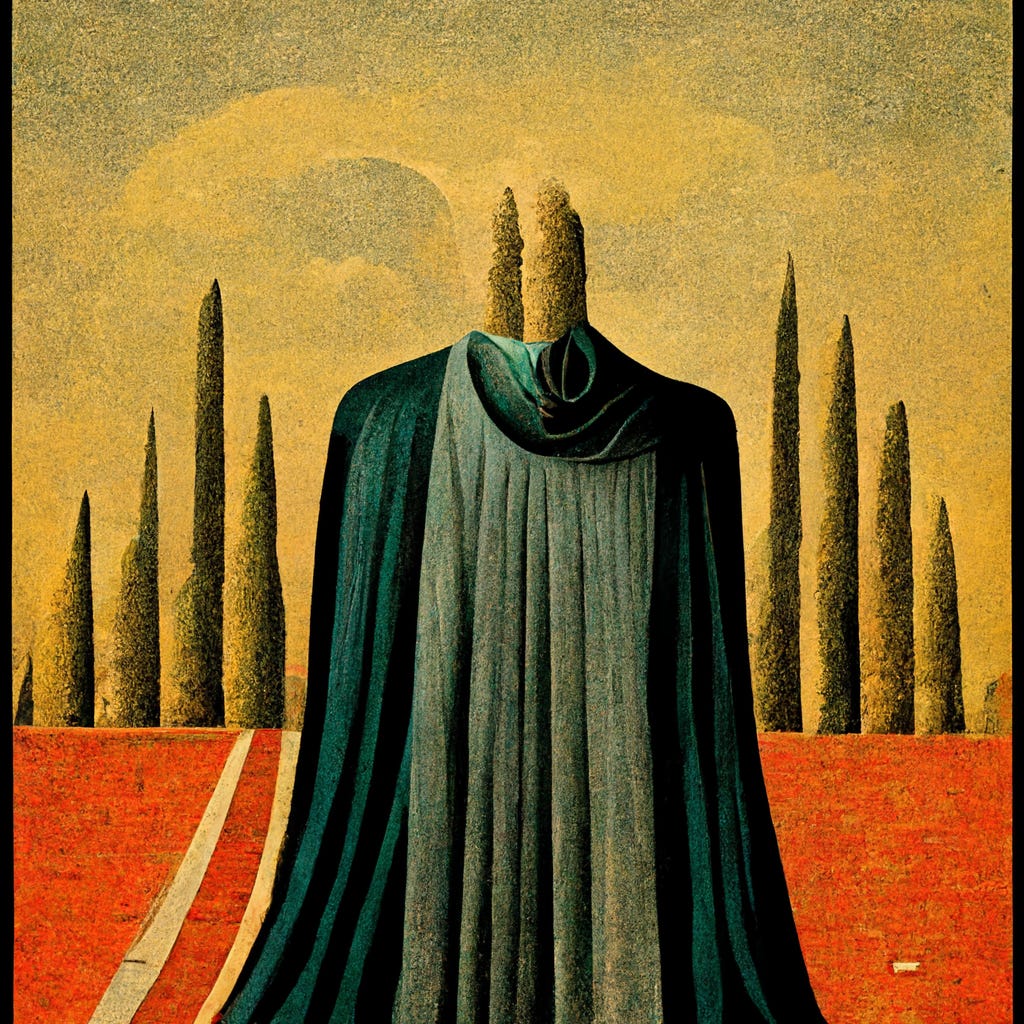
Welcome to the Culture Journalist, a podcast about culture (and counterculture) in the age of platforms. For the full version of every episode, including this one — plus essays, monthly culture recommendations, and more — sign up for a paid subscription.
Today’s episode marks something of a full circle moment for this podcast.
In the spring of 2021, we recorded an interview with artist, technologist, and Interdependence host Mat Dryhurst about a then-little-known technology called NFTs, short for non-fungible tokens. (You may have heard of them.) Seemingly out of nowhere, musicians like Grimes and Kings of Leon were netting millions of dollars by uploading their work to something called the blockchain — and we wanted to take a moment to get clear on exactly what NFTs were, and if there was a chance that they could help independent artists make a living.
Mat made a compelling case for why, despite the legitimate environmental concerns, leftist cultural creators who want to actually get paid for their work probably shouldn’t dismiss these technologies out of hand. The conversation, “What are NFTS? And can they save independent music?,” ended up being one of the most popular episodes we’ve ever recorded. It brought in a lot of new listeners for us, and one of them got in touch: Mark Redito, a Manila-born, Los Angeles-based electronic musician, vocalist, and producer who’d spent most of the 2010s touring and releasing music.
Like the hosts of this podcast, Mark was looking for a way out of the Web2 creator economy grind. Soon after he emailed us — and partly inspired by Mat’s words — he dove head first into the world of music NFTs, which at the time was so new that not even Mat seemed to know if the format actually made sense as a medium.
Most of you know the rest of this story: NFTs became a huge cultural meme, and the object of public derision. They’re something the mainstream cultural imaginary probably associates a lot more with scammy crypto bros who want to financialize everything than independent musicians trying to carve out more artist-friendly alternatives to Spotify and other extractive platforms. Still, even through the recent bear market, the fringe scene of artists and computer geeks that coalesced around these tools is very much alive and well. And since we last checked in, Mark has gone on to co-helm one of the most ambitious and ground-breaking projects that the music NFT space has seen so far: Chaos.
Chaos is a 77-person “headless band” — a riff on Other Internet’s “headless brand” concept — comprising musicians, visual artists, lore builders, economists, and more. Over a period of eight weeks, the group came together to create The Chaos Collection, a compilation of 45 songs that they eventually released in the form of 5,000 NFT “packs,” in the manner of a pack of Pokémon cards. Collectors can open their pack to reveal four randomized songs with original artwork, kind of like a personalized EP but on the blockchain.
Chaos is the latest project from Songcamp, which describes itself as “web3 laboratory experimenting at the edges of music and the new internet.” Not only does the music slap (listen to one of our personal favorites, by Jenn Morel, Abel Romijin, and Zach Britt, here), but it offers an experience that is greater than the sum of its parts, complete with a storyline centered around the Greek goddess of chaos, strife, and discord, Eris.
It’s somewhere between an album, an NFT collection, and a wildly utopian experiment in new forms of human coordination, artistic collaboration, and collective value generation. It’s also been strikingly successful, at least by independent music standards: Since the project went live in June, it’s generated over $500,000 in revenue, topping Billboard’s list of the highest-earning music NFT collections that month.
Needless to say, Mark seemed like the perfect person to bring on the show to ponder the same question we put to Mat, only with a year and a half of hindsight: Given how the space has evolved since the heady bull market days of 2021, could NFTs *actually* save independent music? Mark joins us to discuss how the world of music NFTS, at least at this early stage, is probably more of a counterculture than a mainstream revolution. We also talk about the dire importance of normalizing artistic patronage, and the political necessity of tinkering at the edges of what’s possible — not just trying to “fix” creative industries as they already exist (though that’s also important).
In addition, we get into Chaos’ inception, how they made a 77-person band even work, and the creativity unlocked by celebrating all of the different forms of labor that went into the project — even including coding and economic design — to forms of artistic expression in their own right.
Learn more about Mark’s work
Follow Mark on Twitter
Listen to Mark on Bandcamp
Enter the world of Chaos
Learn more about Songcamp
Read up about how Chaos even happened in the first place


















Share this post